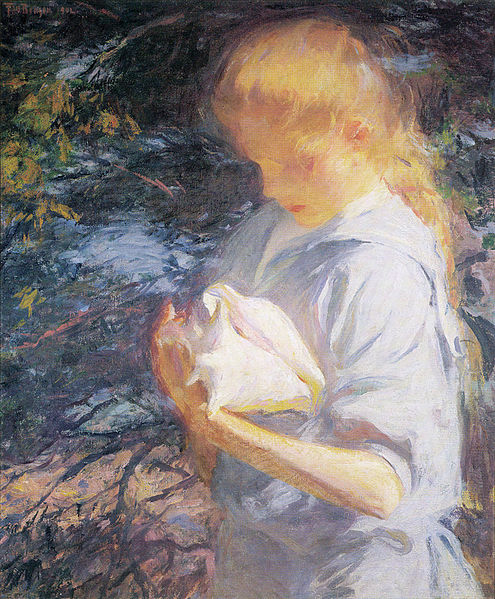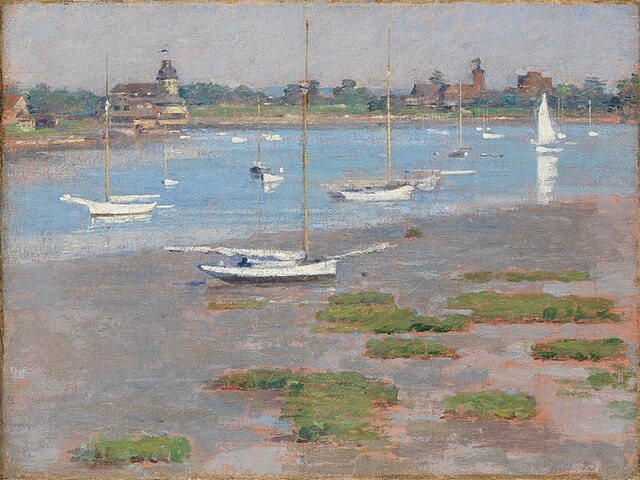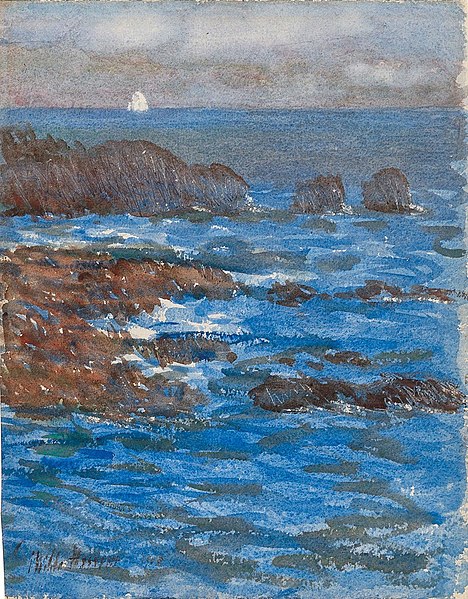Richard E. Miller was an American Impressionist painter and a member of the Giverny Colony of American Impressionists. Miller was primarily a figurative painter, known for his paintings of women posing languidly in interiors or outdoor settings. Miller grew up in St. Louis, studied in Paris, and then settled in Giverny. Upon his return to America, he settled briefly in Pasadena, California and then in the art colony of Provincetown, Massachusetts, where he remained for the rest of his life. Miller was a member of the National Academy of Design in New York and an award-winning painter in his era, honored in both France and Italy, and a winner of France's Legion of Honor. Over the past several decades, he has been the subject of a retrospective exhibition and his work has been reproduced extensively in exhibition catalogs and featured in a number of books on American Impressionism.
Richard E. Miller
Cafe de Nuit, Richard E. Miller, Oil on Canvas, 48+1⁄2" × 67+3⁄8", collection of Terra Museum of American Art
Eva Scott Fenyes with granddaughter Leonora Curtin, Pasadena, c. 1912
Richard E. Miller in his Provincetown studio, 1920s
American Impressionism was a style of painting related to European Impressionism and practiced by American artists in the United States from the mid-nineteenth century through the beginning of the twentieth. The style is characterized by loose brushwork and vivid colors with a wide array of subject matters but focusing on landscapes and upper-class domestic life.
Frank W. Benson, Eleanor Holding a Shell, North Haven, Maine, 1902, private collection
Theodore Robinson, Low Tide Riverside Yacht Club, (1894), Collection of Margaret and Raymond Horowitz
Mary Cassatt, The Child's Bath (1893)
Childe Hassam, Cliffs and Sea, 1903, private collection








